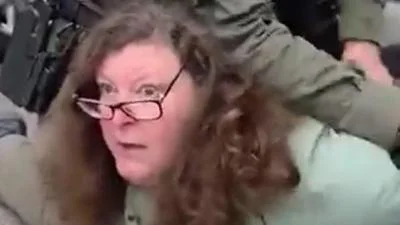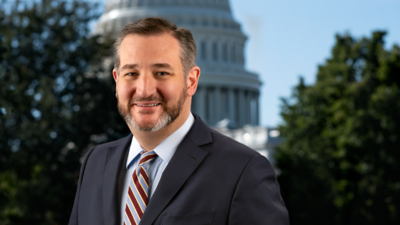CPD officers. | Wikimedia Commons / nathanmac87
CPD officers. | Wikimedia Commons / nathanmac87
Former Chicago police officer Charles Walters says the department is in crisis due to what he calls a collapse in authority, surging crime and a lack of leadership from City Hall.
Walters, who spent more than two decades with the Chicago Police Department in patrol, gang units and seven years undercover in narcotics, said the department’s challenges begin at the top.
“The previous mayor (Lori Lightfoot) didn’t seem like they really had our back,” Walters told Chicago City Wire. “And this mayor (Brandon Johnson) really seems like he doesn’t have the back of the police. It starts there and trickles down to the superintendent. Then the fact that it took a lot of powers from us. We can’t do a lot of things we wanted to do, and the criminals know that.”

Chicago Police Department officer.
| Wikimedia Commons / Paul Goyette
He cited a June 11 protest against U.S. Immigration and Customs Enforcement (ICE) in downtown Chicago, during which demonstrators spray-painted buildings, defaced monuments and damaged police vehicles with graffiti, including slogans such as “Abolish ICE” and profanity targeting public officials.
The mayor’s office allegedly instructed officers to stand down during the demonstration.
Authorities arrested 17 individuals on charges ranging from misdemeanors to felony assault. The protest caused traffic disruptions and additional damage in the city’s center.
Walters said morale began to deteriorate significantly during the 2020 Black Lives Matter protests following the death of George Floyd, when some elected officials publicly supported demonstrators over police.
According to city data, those protests resulted in 15 deaths, more than 284 injured officers and over $66 million in property damage.
“Around the time of the protests, morale was very low,” Walters said. “We were working straight days, barely getting time off, and it was really bad.”
Walters is one of many current and former CPD officers speaking out amid sweeping law enforcement reforms and rising public hostility. He said officers are now limited in how they can respond to crime due to policy restrictions and legal risks.
"Even the videos where you have a girl jumping on top of police cars, dancing, there's nothing you can do,” Walters said. “Especially the juveniles, you really can't do anything to them and they know it now. You see, your hands are tied behind your back, and then you have the summer and citizens are saying that the police aren't doing anything. But they really don't realize that there's nothing we can do, especially with the lawsuits that can come from that. You try to protect yourself."
He also criticized the city’s decision to end the use of ShotSpotter, an acoustic gunshot detection system used to alert police to possible shootings in real time.
“Basically (the mayor) was saying that it was costing us too much money, and he was saying it wasn't working,” Walters said. “But it had shown, since it's been taken away, that there have been people being shot and they haven't been — because there's no ShotSpotter. It takes time for the policemen, even sometimes hours, before you find out that shots were in that area.”
Walters also voiced opposition to the SAFE-T Act, which eliminated cash bail in most cases in Illinois. Critics argue that the SAFE-T Act allows all but the most dangerous criminals to be released pending trial, putting Illinois communities at greater risk.
Walters agrees, saying the law “empowers” repeat offenders to commit crimes repeatedly without consequence, making neighborhoods less safe.
“I think it empowers criminals to feel like they can get away with anything,” he said. “That’s what it boils down to. If you feel that way, you’re going to commit the crime over and over again without thinking about it. You just get right back out, and then they put them on home monitoring systems—that’s a joke. You see so many crimes committed while they’re wearing the device, and they commit the crimes anyway.”
The removal of enforcement tools like ShotSpotter and bail reform are part of a broader trend Walters sees as intentional disempowerment.
“It’s hard to understand why they’re allowing criminals to just walk free, get right back out,” he said. “It’s crazy.”
On the streets, Walters saw how these changes emboldened criminals and effectively degraded neighborhoods.
“A lot of the criminals know the police can’t do what they used to do,” he said. “I see more gangbangers hanging out on the corners. Before, we could tell them to leave; now, we basically can’t.”
He said that business owners are affected as well.
“People hang out in front of stores and gas stations, and if I saw that, I wouldn’t go in,” Walters said.
Walters also said that public respect for officers has declined.
“People don’t respect the police like they used to,” he said. “In the areas I worked, people curse out the police, which never happened back in the day.”
He attributed this shift in public perception in part to growing legal scrutiny of officers.
“You have citizens who say officers are just messing with people, not realizing we’re doing our job,” he said. “If you don’t do it, you get blamed. If you do, you get blamed. It’s like you’re damned if you do, damned if you don’t.”
He believes this toxic environment, combined with increased civilian oversight, aggressive lawsuits and pursuit restrictions, has left many officers feeling powerless and demoralized.
“You have to react fast as a cop. If you think too much, it could hurt you,” he said. “You start wondering if you can do this or if you’ll get in trouble.”
Concerns about officer well-being have been documented in national and local media. An article by The Free Press titled How Can You Be a Cop in a City That Hates You? explored rising burnout, PTSD, alcoholism, and family breakdown among officers.
According to the city, 53 Chicago police officers have died by suicide over the past decade.
Walters said his decision to retire came after one specific moment on patrol.
“Mopeds that aren’t supposed to be on the street were zigzagging in front of us, laughing because they knew we couldn’t do anything,” he said. “Our hands were tied behind our backs, and they knew it. That’s when I realized it was time to go.”
Despite his disillusionment, Walters still hopes for change.
“It’s going to be hard for new officers,” he said. “All I can do is pray for them and hope we get better leadership so they can have prosperous careers.”
For now, Walters remains in Chicago, holding on to hope for change in the city’s leadership.
“I’m trying to hold on because I was born and raised here and don’t want to leave,” he said. “I hope things get better, but it’s hard, and it won’t take much for me to decide I have to go. I can’t take much more.”





 Alerts Sign-up
Alerts Sign-up